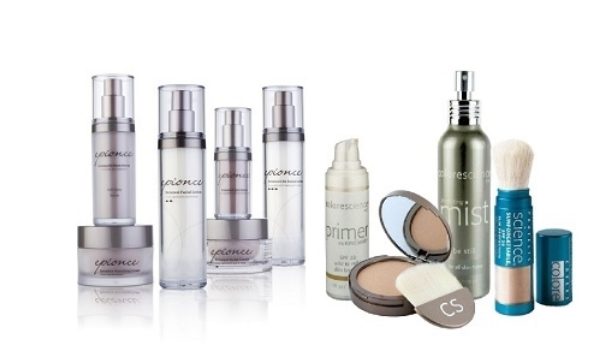Parabens and why we should try to avoid them
27/9/17
Every so often yet another health scare hits the newspapers but Parabens have been hitting the headlines for over a decade now so how come we still don’t really understand what they actually are, how to avoid them and how they might impact our health adversely.
So what are Parabens?

Parabens are a mixture of chemical compounds which combine to make a type of preservative to keep ingredients fresh and bacteria free for long periods of time. This means that the shelf life of the products that they are introduced into have a shelf life which is significantly longer.
The five most commonly used Parabens are:
- Methylparaben
- Ethylparaben
- n-propylparaben
- n-butylparaben
- isobutylparaben
Fortunately for us all manufactures are compelled by law to list all the ingredients in their products on the packaging so knowing what to look for is vital if you want to avoid these chemicals.
What products are Parabens commonly used in?
About 75% of health and beauty products sold in our shops tody contain Parabens. If you check their list of ingredients you will almost certainly find one or all of the names above listed. The list of health and beauty products concerned are endless but include the very common ones of toothpaste, sunscreens, shampoo, conditioner, hair styling products, mascaras, moisturisers, foundations, body creams, face cleansers, soaps and lipsticks. So virtually every product that we use on a daily basis has these Parabens in and the same goes for the products that our men and children use in daily life too.
What makes Parabens bad for our health?
According to the Breast Cancer UK website the most common Parabens which we listed above possess the ability to mimic the action of the female hormone oestrogen creating an endocrine disrupting chemical. They go on to explain that all Parabens have been shown to bind to human oestrogen receptors and increase the expression of oestrogen-responsive genes in human cells and increase the growth of the cells. In layman’s terms this means this could lead to an increased growth of oestrogen-responsive human breast cancer cells. Certain cancers including breast cancer can be triggered by elevated oestrogen levels initiating an increase in breast cell division and growth of tumours.
As far back as 2004 a British study found traces of five Parabens in the breast tissue of 10 out of 20 women studied. The study did not prove that the Parabens can cause cancer but identified that the Parabens were able to penetrate the skin and remain in the breast tissue.
Breast Cancer UK supports the phasing out of all Parabens from all cosmetic products and also from those products which are applied to the skin.
Are there any other health issues associated with Parabens?
Recently Reuters Health published a report linking Parabens to low testosterone levels which may contribute to male infertility. Seemingly the Parabens can also affect the shape and speed of a man’s sperm so combined with the lowered testosterone level can damage a man’s fertility.
Researcher carried out a laboratory test at a fertility clinic in Poland to try to determine the problems that the men were having with reproduction. The lab took samples of the men’s urine, saliva, blood and semen to analyse. They did a comparison between men who had high levels of Parabens in their urine against men who had low levels and found that the group of men with high levels of Parabens had a larger proportion of abnormal sperm commonly thought to contribute to infertility. The high levels of Parabens found in their urine were also associated with a damaged DNA in the sperm and a decreased sperm motility too all of which could contribute to infertility.
A study by the U.S.National Institute of Health also seem to back this up when they discovered that Butylparaben was associated with an increase in the percentage of sperm with abnormal size and shape as well as a decrease in motility. Eythlparaben was also found to effect size and shape.
Research continues on the effects of Parabens and male fertility and for the time being scientists have not proved categorically that a ban should be placed on these chemicals.
Parabens and the environment
One final nail in the coffin for the use of Parabens could also be their effect on the environment. Another scientific study reported that Parabens have been found for the first time in the bodies of marine mammals. Researchers believe that it is likely these Parabens come from products we use daily that are washed into the sewage system and released into the environment.
How can I avoid Parabens and their associated health risks?
If you decide that you would like to avoid using health and beauty products that contain Parabens then do spend some time doing your research. Google Paraben free ranges to help you avoid the range of Parabens that we listed earlier in the article. Finding products without preservatives in the form of Parabens should not mean having to compromise on the shelf life of the product either.
So it’s a matter of weighing up the pros and cons of Parabens and if you decide that you would prefer to err on the side of caution and research then visit our skincare section. Our ranges of Epionce and Colorescience can take care of all of your skincare and mineral make up requirements and best of all are PARABEN FREE!